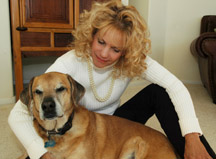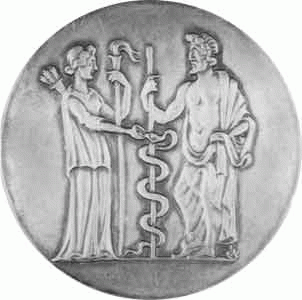More and more I'm seeing patients who have been on medication for 15, 20, 40 years. I ask them, "Is it helping?" And inevitably they answer, "If I felt better would I be here?"
One woman was on 27 different medications. A young man had originally only been mildly depressed, but was "revealed" as bipolar after he was put on Prozac. Another woman was arrested after she was given Zoloft and had an immediate and dramatic manic episode. None of them have been given any relief with the "standard of care."
I have been educating people about alternatives to pharmaceutical treatments for many years, but lately the need for a change has been made increasingly and painfully vivid.
But I understood her sentiment. Overall, as a culture, we pay a great deal of attention to what we feel in our bodies. We work out. We worry about our abs and sagging jaw lines. We are bombarded with pharmaceutical ads urging us to be aware of ominous "new symptoms." As a result, we can describe physical sensations with some accuracy. Mentally and emotionally, however, we are losing the ability to know--much less express with precision--what we're feeling or why.
The following is a journey through several cases, how they may be seen homeopathically, and how healing can be enjoyed in a relatively brief period of time.
It takes time
For instance, I recently counseled one 68-year-old woman who came in quite full of energy and sat with legs crossed, one foot moving back and forth, hands tapping on her knee. I asked, "How can I help you?" And she said without batting an eyelash, "I have major depression associated with old age." I asked how she knew that and the reply came quick as a whip: "Because I'm old."
I couldn't hold back my laughter, at which point she laughed too. In that moment of intimacy that comes with looking honestly at the truth together (the truth being the way she sounded like a Pfizer commercial), our collaboration took its first real step. Then with a couple of hours of careful questioning, we found out that she wasn't really all that depressed. She was bored. If I had taken her at her first word, I would have been led down a rosy path to nothing but a long series of the wrong homeopathic remedies.
This is just one of many experiences I've had that shows the benefit of taking time to discover the real and deepest truth about a patient. But there are two difficulties with taking a homeopathic case (i.e., interviewing the patient in order to find the remedy) in this lengthy way. The first lies in our culture and the emotional inattentiveness that makes it hard to access this level of truth. The second lies in the medical system's entrenchment with insurance forms, diagnostic modalities, and the need to "move things along." Anything solid--especially healing and developing a therapeutic relationship--takes time. And no one in America ever has enough time.
Down the rabbit hole
For this reason, our curiosity is the cornerstone of good
case-taking. If the patient comes in and says "I'm depressed," we don't have to
rush to look up that particular symptom in the homeopathic reference known as
the repertory. The rubric "Mind; Sadness" has 631 remedies listed in the
repertory I use. It would do us very little good to choose that rubric as the
underpinning of our case analysis precisely because of its breadth. In
representing so many remedies, it actually points to none in particular.
One of the things mental health professionals are trained to do is "diagnose." A patient comes in, an insurance form is produced, and a psychiatric diagnosis is given so that the session will be reimbursed. From day one in graduate school, the emphasis is on the syndrome, not the patient. We want to know what he's "got" or what she "is." Does he have obsessive compulsive disorder? Is she a "borderline personality"? After more than 25 years of practice, I have not seen the precise value of knowing these things, except that they get us a fee from the insurance company. Never once has knowing a patient's psychiatric diagnosis truly guided me to healing them. Understanding their individual pains, their unique losses and gifts, their needs and longings, their fears--that's what's useful in my counseling work.
The same is true in homeopathy. Instead of relying on broad
terminology ("depression" or "sadness") we have to ask and ask and ask: What do
you mean by depressed? When? How? What triggers it? When did it start? What do
you mean by sad? What do you mean by angry? What happens when you feel that
way? And even further down the rabbit hole: how do you know you're angry and
not hurt? What's the difference for you?
Seeing the whole person





